Mudd, SamuelAutograph letter signed (“Saml A. Mudd”) to his brother, Jeremiah T. Mudd (“My Dear Jere”), describing life in prison
3 pages (198 x 132 mm) on a bifolium of plain stationery, "Fort Jefferson, Dry Tortugas, Fla.," 21 October 1865; separation at central vertical fold touching a few letters on the first leaf.
A very scarce autograph letter by the physician convicted of participating in the conspiracy to assassinate Abraham Lincoln; we can trace no other letters by Dr. Mudd in the standard auction records.
The question of Mudd’s complicity in John Wilkes Booth’s plot against the President has never been satisfactorily settled (although James L. Swanson’s Manhunt: The Twelve-Day Chase for Lincoln’s Killer and Edward Steers Jr.’s Blood on the Moon make compelling cases for Mudd’s guilt). What is not in question is that on the early morning of 15 April 1865, perhaps six hours after he shot Lincoln at Ford’s Theatre, Booth and fellow conspirator David Herold went to Mudd’s home in Waldorf, Maryland, where the young physician fitted Booth with a splint (he had broken his left fibula jumping from the presidential box), and had a pair of crutches made for him. Booth and Herold remained at Mudd’s home for some twelve to fifteen hours.
Despite his claims that he did not know Booth previously and that he was unaware of the assassination when he treated Booth, contradictory testimony and much circumstantial evidence led to Mudd’s conviction. He was spared the death penalty, however, and sentenced to life in prison. The present letter was written from the maximum security federal prison at Fort Jefferson, in the Dry Tortugas, west of Key West, less than a month after he had attempted escape. After the foiled escape attempt, Mudd and three others convicted of roles in the conspiracy—Michael O'Laughlen, Edmund Spangler, and Samuel Arnold—were moved to special quarters within the prison, which he describes.
"Since I wrote you last we four & another prisoner under a life sentence [George St. Leger Grenfell] recently arrived have been locked in a room every night closely guarded & not allowed to leave the door during the day without being accompanied by a guard. This is said to be owing to a rumour … that a plot or plan is originating, either at Havana or New Orleans, to rescue us from this place. The nation certainly is growing mad to believe in such nonsense; & we the victims of its credulity—feel greatly the Sting caused by the Sensationalist & political intriguers hostile to our well-being."
Mudd tells his brother that none of the convicted conspirators have given any difficulty "other than my individual effort to get away. …” He also complains of being under the watch of Black guards, belying the claims made at his trial that he was a staunch Union man and supporter of Lincoln: “I plead my apprehensions—the insecurity of life, the humiliation of being guarded by an ignorant, irresponsible & prejudiced negro Soldiery, before an Enlighted People as a justification. We are now guarded entirely by negro soldiers & a few white Officers, a skin's difference."
He charges Jeremiah to “please quietly enquire concerning these foolish reports, so injurious to us, —& know what orders if any, that have recently emanated from the War Department regarding our future imprisonment. We are of the opinion that these rumors were gotten up purposely to have an excuse to treat us with more rigor & hardship."
Mudd notes that he has received letters and a few supplies from family members and sends his love to all, assuring them that he is very well under the circumstances. But he warns Jeremiah that he has “heard there will be restrictions placed over our correspondence so be careful what you write.”
In a lengthy postscript Mudd ponders whether his “foolish attempt to extricate myself from this woeful place” “will have a tendency to prolong my stay here, or [be] likely to lessen the influence of friends. I have done nothing more than any other man would under similar circumstances. There is no man living, but would free himself from such a place at the present time, had he the power.” Mudd’s final sentence may have been intended for the prison censors as much as his brother: “I am resolved not to leave this place unless released by proper authority."
In September 1867, an outbreak of yellow fever killed the prison doctor, and Mudd volunteered to assume the position. The following month the soldiers at Fort Jefferson sent a petition to President Andrew Johnson attesting to Mudd’s service: “"He inspired the hopeless with courage and by his constant presence in the midst of danger and infection. … [Many] doubtless owe their lives to the care and treatment they received at his hands." This petition undoubtedly played a role in Johnson’s decision to pardon Mudd in February 1869, shortly before the expiration of his presidential term. Mudd died in 1883. Several campaigns to have Mudd’s conviction overturned have all failed.
PROVENANCE:The Elsie O. and Philip D. Sang Foundation (Sotheby Parke Bernet, 14 November 1978, lot 506) — John Lattimer (Heritage, 20 November 2008, lot 61244)
Mudd, SamuelAutograph letter signed (“Saml A. Mudd”) to his brother, Jeremiah T. Mudd (“My Dear Jere”), describing life in prison
3 pages (198 x 132 mm) on a bifolium of plain stationery, "Fort Jefferson, Dry Tortugas, Fla.," 21 October 1865; separation at central vertical fold touching a few letters on the first leaf.
A very scarce autograph letter by the physician convicted of participating in the conspiracy to assassinate Abraham Lincoln; we can trace no other letters by Dr. Mudd in the standard auction records.
The question of Mudd’s complicity in John Wilkes Booth’s plot against the President has never been satisfactorily settled (although James L. Swanson’s Manhunt: The Twelve-Day Chase for Lincoln’s Killer and Edward Steers Jr.’s Blood on the Moon make compelling cases for Mudd’s guilt). What is not in question is that on the early morning of 15 April 1865, perhaps six hours after he shot Lincoln at Ford’s Theatre, Booth and fellow conspirator David Herold went to Mudd’s home in Waldorf, Maryland, where the young physician fitted Booth with a splint (he had broken his left fibula jumping from the presidential box), and had a pair of crutches made for him. Booth and Herold remained at Mudd’s home for some twelve to fifteen hours.
Despite his claims that he did not know Booth previously and that he was unaware of the assassination when he treated Booth, contradictory testimony and much circumstantial evidence led to Mudd’s conviction. He was spared the death penalty, however, and sentenced to life in prison. The present letter was written from the maximum security federal prison at Fort Jefferson, in the Dry Tortugas, west of Key West, less than a month after he had attempted escape. After the foiled escape attempt, Mudd and three others convicted of roles in the conspiracy—Michael O'Laughlen, Edmund Spangler, and Samuel Arnold—were moved to special quarters within the prison, which he describes.
"Since I wrote you last we four & another prisoner under a life sentence [George St. Leger Grenfell] recently arrived have been locked in a room every night closely guarded & not allowed to leave the door during the day without being accompanied by a guard. This is said to be owing to a rumour … that a plot or plan is originating, either at Havana or New Orleans, to rescue us from this place. The nation certainly is growing mad to believe in such nonsense; & we the victims of its credulity—feel greatly the Sting caused by the Sensationalist & political intriguers hostile to our well-being."
Mudd tells his brother that none of the convicted conspirators have given any difficulty "other than my individual effort to get away. …” He also complains of being under the watch of Black guards, belying the claims made at his trial that he was a staunch Union man and supporter of Lincoln: “I plead my apprehensions—the insecurity of life, the humiliation of being guarded by an ignorant, irresponsible & prejudiced negro Soldiery, before an Enlighted People as a justification. We are now guarded entirely by negro soldiers & a few white Officers, a skin's difference."
He charges Jeremiah to “please quietly enquire concerning these foolish reports, so injurious to us, —& know what orders if any, that have recently emanated from the War Department regarding our future imprisonment. We are of the opinion that these rumors were gotten up purposely to have an excuse to treat us with more rigor & hardship."
Mudd notes that he has received letters and a few supplies from family members and sends his love to all, assuring them that he is very well under the circumstances. But he warns Jeremiah that he has “heard there will be restrictions placed over our correspondence so be careful what you write.”
In a lengthy postscript Mudd ponders whether his “foolish attempt to extricate myself from this woeful place” “will have a tendency to prolong my stay here, or [be] likely to lessen the influence of friends. I have done nothing more than any other man would under similar circumstances. There is no man living, but would free himself from such a place at the present time, had he the power.” Mudd’s final sentence may have been intended for the prison censors as much as his brother: “I am resolved not to leave this place unless released by proper authority."
In September 1867, an outbreak of yellow fever killed the prison doctor, and Mudd volunteered to assume the position. The following month the soldiers at Fort Jefferson sent a petition to President Andrew Johnson attesting to Mudd’s service: “"He inspired the hopeless with courage and by his constant presence in the midst of danger and infection. … [Many] doubtless owe their lives to the care and treatment they received at his hands." This petition undoubtedly played a role in Johnson’s decision to pardon Mudd in February 1869, shortly before the expiration of his presidential term. Mudd died in 1883. Several campaigns to have Mudd’s conviction overturned have all failed.
PROVENANCE:The Elsie O. and Philip D. Sang Foundation (Sotheby Parke Bernet, 14 November 1978, lot 506) — John Lattimer (Heritage, 20 November 2008, lot 61244)
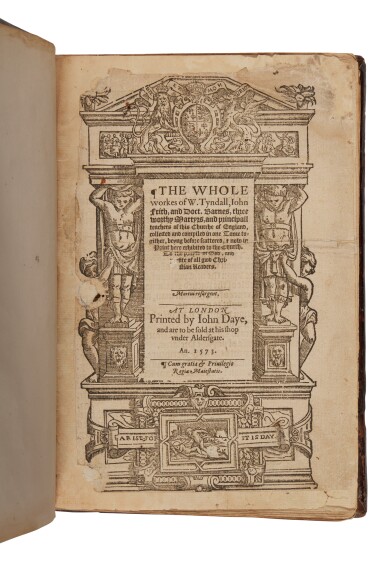




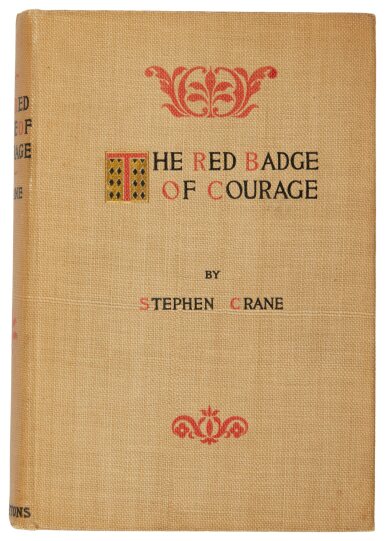


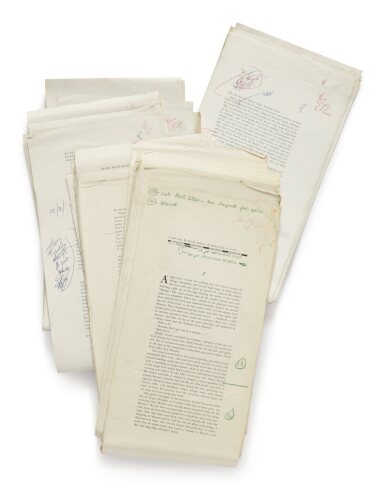
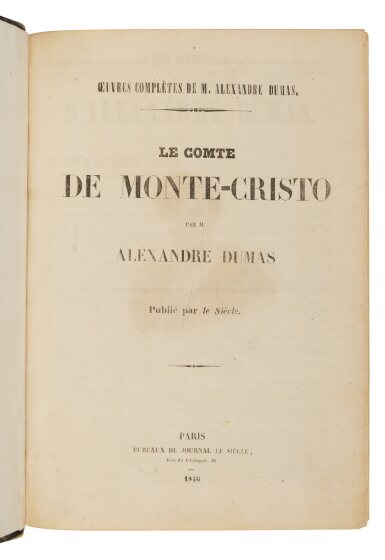


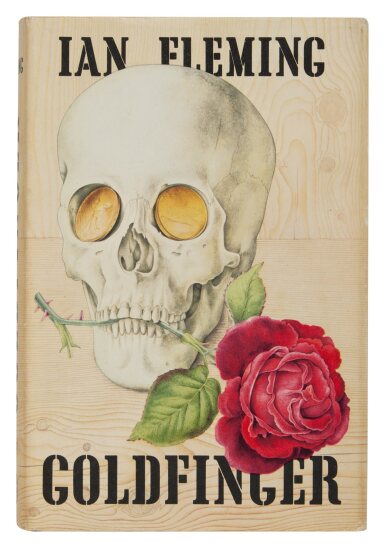


Testen Sie LotSearch und seine Premium-Features 7 Tage - ohne Kosten!
Lassen Sie sich automatisch über neue Objekte in kommenden Auktionen benachrichtigen.
Suchauftrag anlegen